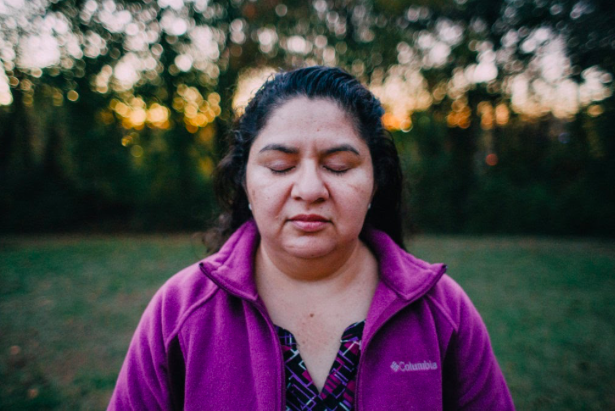 Sanctuary, a place of refuge or safety, is a basic human need denied to thousands of unauthorized immigrants in the United States. This group of immigrants perform some of the most difficult jobs on a daily basis with no protections. According to the Pew Research Center, unauthorized workers make up 25% of farmworkers, 15% of construction workers, and 40% of the meatpacking industry. Where would we be without immigrants contributing to our food system and many other industries? As the COVID-19 pandemic has shown us, we clearly need these workers, but we have been unwilling to find a way to provide them legal status or citizenship. We are willing to take their work, but not willing to provide them safety.
Sanctuary, a place of refuge or safety, is a basic human need denied to thousands of unauthorized immigrants in the United States. This group of immigrants perform some of the most difficult jobs on a daily basis with no protections. According to the Pew Research Center, unauthorized workers make up 25% of farmworkers, 15% of construction workers, and 40% of the meatpacking industry. Where would we be without immigrants contributing to our food system and many other industries? As the COVID-19 pandemic has shown us, we clearly need these workers, but we have been unwilling to find a way to provide them legal status or citizenship. We are willing to take their work, but not willing to provide them safety.
Since the election of Donald Trump, the immigrant community has been on high alert. He campaigned on a get-tough on immigration policy and has followed through on that promise. Under this administration, the Department of Homeland Security (DHS) has expanded removal priorities to include those without criminal records. As of May 2017, there had been a 150% increase in these types of arrests. ICE also began to arrest immigrants when they came for their regular check-ins, even if they had been following ICE’s rules for years. DHS also increased the number of local law enforcement groups who work with them to report undocumented immigrants.
Groups supporting immigrants knew that they needed to further organize to protect immigrants from deportation and harassment. In 2018, deportations increased by 17 percent. In 2019, there were raids of chicken processing plants in Mississippi where 680 immigrants were detained and many deported. Groups like Sanctuary Movement, a program of Church World Service, have grown and organized to help faith communities in offering sanctuary to those facing deportation by providing guidelines for preparation, organization, and knowing your rights in case of an ICE raid.
In the face of this situation, some church communities have made their own decisions rooted in their faith to provide sanctuary to individuals facing deportation. Since 2017, the number of houses of worship enrolled to provide sanctuary has grown from 400 to over 1,100. Additionally, many of these churches are forming sanctuary coalitions to support one another.
Because of the legal ramifications of providing sanctuary, this is not a decision that is made lightly. I spoke with Reverend Randall Keeney of St. Barnabus Episcopal Church in Greensboro, North Carolina where Juana Luz Tobar Ortega has lived in sanctuary since May of 2017. I wanted to find out how their congregation came to the decision. Rev. Keeney recalls that the idea to offer sanctuary grew organically out of relationships with people within the immigrant community and the congregation’s membership. They have long-time parishioners who are immigrants who either have asylum or are citizens. They initially thought that they would offer asylum to a church member from El Salvador who had been targeted by MS-13 gang for assassination. But that situation did not work out. So when the American Friends Service Committee (AFSC) approached the church about offering sanctuary to Juana, they had already done some homework. When they heard her story of having lived in the United States since 1992 and worked as a seamstress raising her family including grandchildren, they knew they wanted to help.
The vestry (leadership) of the church voted unanimously to provide Juana sanctuary. When they brought the issue to the church membership, again the vote was unanimous. Rev. Keeney did say that they lost a couple of families from the congregation as a result, but overall, the congregation was behind the decision including many of the more conservative members. It is a relatively small congregation of about 80-100 members. There is also a Latino congregation that meets in the church in the evenings, and there is crossover between the congregations. The AFSC required the church members to undergo background checks to make sure that there was no one who would provide information to or turn Juana over to Immigration and Customs Enforcement (ICE). Rev. Keeney said, “AFSC wants to make sure they are not wolves in sheep’s clothing. They (ICE) can be ruthless.” As Rev. Keeney wrote in an opinion piece in the Washington Post last year, “once someone comes into sanctuary, caring for and protecting them is a total commitment.” Juana is never left alone. If her family members or friends are not there, then a church volunteer is. Seventy-five percent of the people who stay with her are church members and the other 25% are well known in the immigrant community. They do not want her to be in the position of opening the door if ICE agents come. This takes a tremendous amount of planning and organizing. Volunteers are trained how to respond in case ICE does come to the church. While ICE considers churches to be “sensitive locations”, there is no law preventing them from removing a person if they have a warrant.
The church has given over two rooms that are connected for Juana’s exclusive use. She also has access to the kitchen and frequently cooks for church functions. Juana contributes to the community as best she can given her circumstances. She has sewn hundreds of face masks since the pandemic began and sews regularly for others in the community.
Offering sanctuary means that the church must take care of all of Juana’s daily needs from groceries to laundry. Juana belongs to a Pentecostal church in Asheboro, and they provide quite a bit of support through regular visits. Being apart from your family, even when they visit regularly is hard, but Juana has clergy, friends and Latino counselors who visit regularly to help keep her spirits up.
Juana just passed the third anniversary of her arrival at St. Barnabus for sanctuary. When I asked Reverend Keeney if he ever thought she would be there that long he replied, “We have very conflicted and guilty feelings because we love having her, but we, of course, want her to have a normal life. We did not anticipate her needing sanctuary for this long, but we are never going to ask her to go anywhere. We love her a lot.”
To find out more about Juana’s situation and other immigration issues, please join us on June 18 at 7:00 p.m. for a virtual screening of “Stories Beyond Borders.” You can register here.
 Anna Lynch is a “writer, educator, and champion for all things women.”
Anna Lynch is a “writer, educator, and champion for all things women.”

Anna, as a vestry member at the time of our deliberations and votes, devoted to my new and dear friend Juana, and so grateful to Randall, our deacon Leslie, and the good people of St.Barnabas, I would say “ALL of this is ultimately about faith.” We all need more of that, and of the bravery and craziness needed to take a leap! Thank you for writing this article. How can copies be distributed more widely?